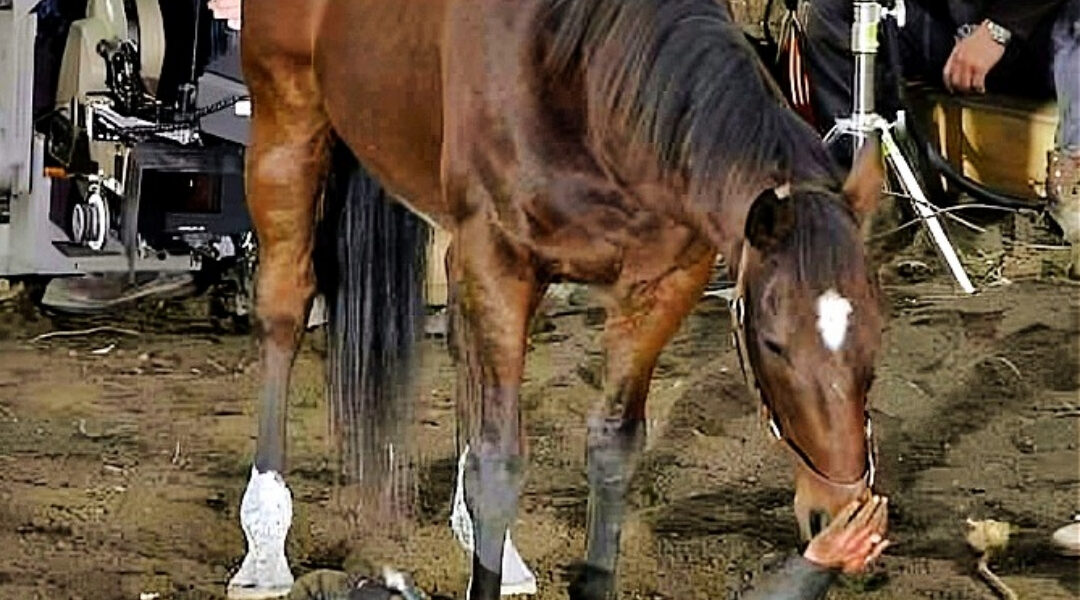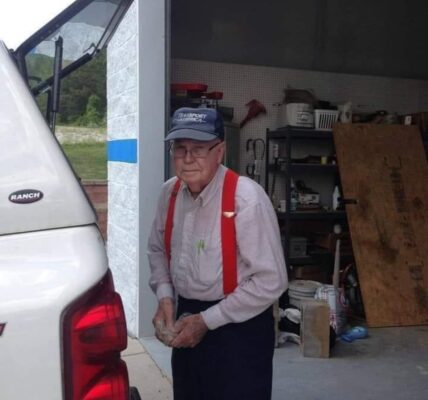
To the world, he will always be Aragorn — the fearless Ranger who rose to become King of Gondor. But away from the battlefields of Middle-earth, actor Viggo Mortensen revealed a quieter kind of heroism — one that had nothing to do with swords or crowns, and everything to do with heart.
It happened not in the chaos of war, but behind the scenes — in the long, grueling months of filming The Lord of the Rings.
The trilogy was a monumental undertaking: years of work in the rugged wilderness of New Zealand, under rain, wind, and blinding sun. It demanded more than endurance. It demanded soul.
For Viggo, that soul was found in the bond he shared with his horse.
The bay mare, used throughout the filming, was no ordinary animal. She carried Aragorn across muddy plains, through the smoke of battle, and into the heart of cinematic legend.
Her eyes were calm, intelligent, steady — the perfect reflection of the character she carried. But what began as a professional partnership slowly grew into something far deeper.
Every morning, Viggo visited her before the cameras rolled. He brushed her coat, spoke softly, and fed her apples. Between takes, while the crew reset lights or prepared effects, he would stay by her side. “He didn’t just ride her,” one crew member recalled.
“He connected with her. You could feel the trust between them.”
That trust would be tested day after day. There were long battle scenes that left both horse and rider drenched in sweat. There were charges through water, scenes where explosions echoed nearby, and moments where even trained animals might panic.
But Viggo’s calm voice always steadied her. On set, people started calling the horse Aragorn’s heart — because wherever Viggo went, she followed.
When the final scenes were wrapped and the crew began to pack up, Viggo did something that surprised no one who had seen him with her.
He refused to leave her behind. He bought the horse, paying out of his own pocket so she could live out her days free and loved, rather than being sold or reused in other productions.
To him, she wasn’t a prop. She was a partner — one who had carried him, trusted him, and helped bring one of cinema’s greatest heroes to life.
But the story didn’t end there.
Another cast member — a stuntwoman who had doubled for Arwen — had also bonded deeply with her own horse on set. The two had shared months together, but when filming ended, she couldn’t afford to buy the animal.
When Viggo heard about it, he didn’t hesitate. Quietly, without any announcement or fanfare, he bought that horse too — and gave it to her.
No press release. No cameras. No grand gesture. Just kindness.
“He didn’t tell anyone,” one crew member later said. “He didn’t do it for attention. That’s just who he is.”
For Viggo Mortensen, the horses were living souls — not extensions of the film, but beings with memory, emotion, and dignity. He spoke often about how much the animals taught him: patience, stillness, honesty.
“When you work with a horse,” he once said, “you have to earn its trust. You can’t fake that — not in life, and not on film.”
That authenticity became part of why his portrayal of Aragorn felt so real. His connection with nature, his gentleness with animals, his quiet strength — they weren’t just acting choices. They were reflections of who he truly was.
After the trilogy wrapped, Viggo took his horse home to live on his ranch, where she could roam freely. There, far from the spotlights and scripts, she lived out her life in peace. Whenever visitors asked, he would simply smile and say, “She earned her rest.”
Years later, when fans talk about The Lord of the Rings, they remember the battles, the speeches, the epic journeys.
But for those who know this story, one image stands above the rest — a man in dusty armor lying in the dirt, gently reaching out to his horse, the animal lowering her head to nuzzle his hand.
It’s a moment of tenderness amid chaos, caught forever on film — not part of the script, but real.
In that frame, you see everything that made Viggo Mortensen the kind of hero we rarely talk about: humility, compassion, and respect for all living things.
He may have played a king on screen, but his truest nobility showed in quiet acts — buying a horse not for glory, but for love; helping a colleague without seeking praise; honoring the loyalty of the creatures that carried him through the story of a lifetime.
Because true heroism isn’t always about saving worlds. Sometimes, it’s about saving one gentle life — and never forgetting that even in fantasy, kindness is the most powerful magic of all.




